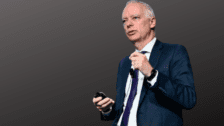Digital divide exacerbated income inequality during pandemic
According to US$3.3 trillion ($4.3 trillion) asset manager, Fidelity International, companies with strong ESG characteristics outperformed in 2020, and should be expected to continue delivering strong returns into the future. That said, significant work lies ahead as the global economy moves towards a more ‘sustainable’ footing with asset managers central to this process.
“Engagement” has been a popular term used by asset managers of all kinds seeking to put forward their ESG credentials in a sea of green. Referring to the ability to ‘nudge’ or liaise with management of major companies in order to effect change, there remains important questions over what change can actually be delivered by smaller asset managers or whether this is just marketing spin.
For larger asset managers, including the likes of Fidelity, Blackrock, Vanguard etc. the engagement opportunities are real and material. Money talks in financial markets and the group has highlighted three themes for their engagement focus in 2021; climate and natural capital, employee welfare, and digital ethics.
According to Fidelity, the impacts of climate change are well-known and hence its focus is on decarbonising its portfolio and operations in various ways. Internally, the group has committed to net-zero-emissions by 2040 across its operations and continued to invest in its proprietary sustainability rankings. These rankings aimed to remove the inefficiencies of broad index assessments and identify companies exposed to climate risk in the form of regulation or physical impacts.
In 2020 Fidelity will be focused on engaging with firms to manage risks and reduce emissions via its participation in the Climate 100+ initiative. Natural capital, or the world’s stock of soil, air, water and living things, is said to be linked to over 50% of global GDP, according to the World Economic Forum, and hence requires significant focus and investment.
The second theme of engagement will be the treatment of employees and assessment of global supply chains after what has been a tumultuous 12 months for the world. According to Fidelity 2021 will see “more pressure on companies to take greater accountability not only for the welfare of their workforce, but for the community at large, and for the individuals in their (often) complex supply chains”.
The manager quotes figures from the International Labour Organisation (ILO) that only 20% of the global workforce of 3.3 billion has been unaffected by COVID-19 and lockdowns in some way and that “women have lost more income than men,” according to the UN. The result is that Fidelity will “be looking to companies to make genuine efforts to support their female workforce.”
Similarly, it highlights the plight of 400,000 seafarers stuck at sea during the pandemic, citing the power of engagement from asset managers after writing to 30 businesses involved in the sector calling for action. The biggest focus, however relates to “engagement on the auditing of suppliers for poor or criminal practices.”
The third key theme is the “redefining of ethics for a digital world,” after a year in which social media kept us together, but power and governance issues were brought to light. Fidelity flags the fact that access to digital tools has “exacerbated economic inequality,” citing the ability for rural and other workers to access government support without internet access being a key risk. According to the International Telecommunications Union (ITU), 50% of the global population has no internet access. Similarly, some 82% of jobs in the United Kingdom are said to require digital skills, making life difficult for the less-digitally-capable natives.
A core part of its engagement will come from the launch of the Digital Inclusion Benchmark, which, supported by Fidelity, will rank global tech companies on their contribution to “digital inclusion.” It also highlights under-appreciated issues like “ethical artificial intelligence design,” “data privacy” and “online fraud” as being among the biggest challenges faced by consumers and businesses in 2021.










